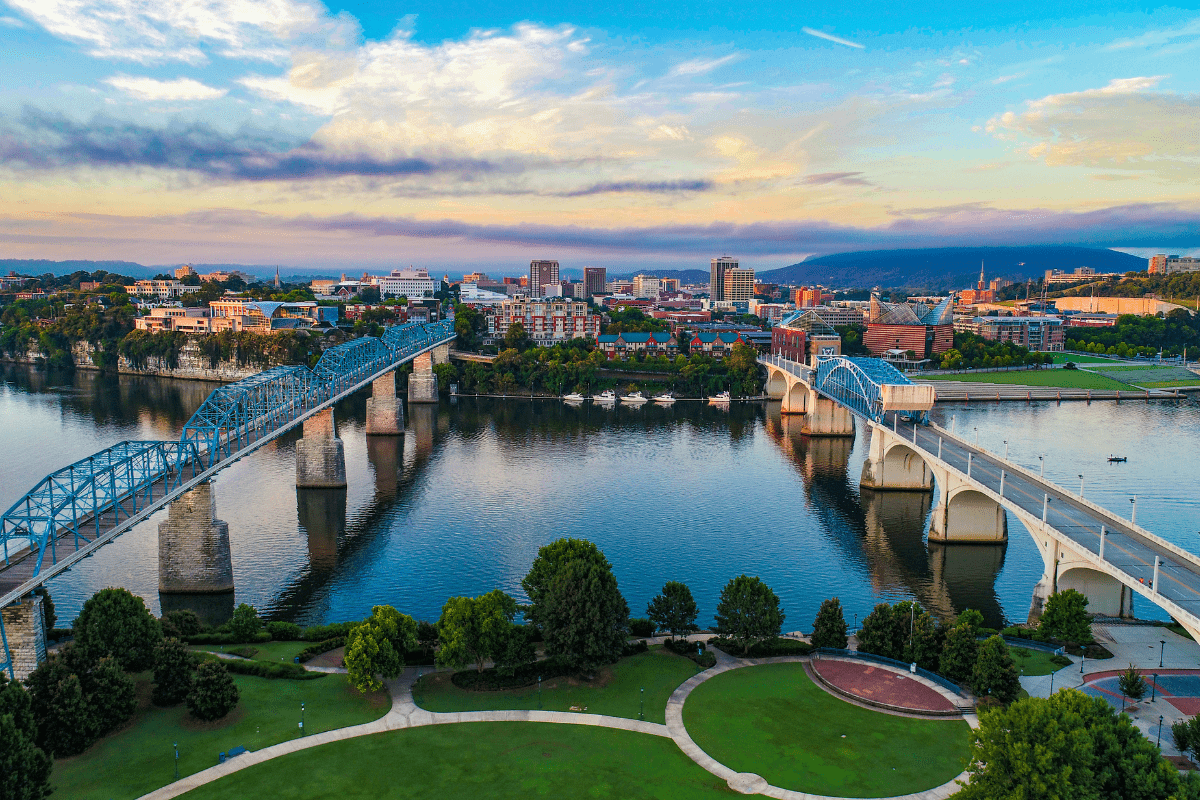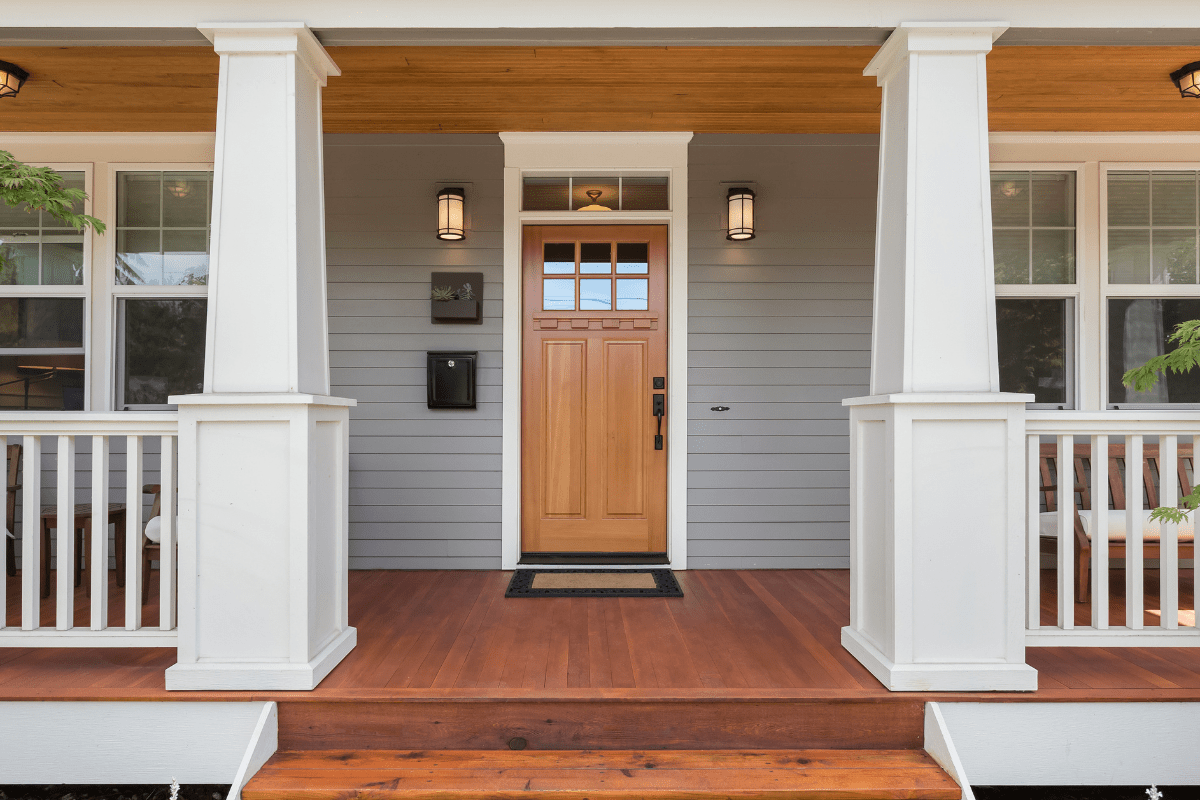Tennessee's weather has more personalities than a Nashville songwriter's dating history. From Memphis blues melting in summer heat to Gatlinburg's mountains dressed in fall's finest, timing your Tennessee trip right means the difference between magical memories and sweating through your third shirt of the day. After diving deep into weather data, festival calendars, and local secrets, here's your no-nonsense guide to visiting Tennessee's cities when they're actually at their best.
Spring in Tennessee: When everything blooms (including your allergies)
Spring transforms Tennessee into nature's own Broadway show, complete with dramatic weather changes and stunning costume changes as flowers burst into bloom. The season typically runs from March through May, though Memphis likes to get a two-week head start on Nashville because apparently, even seasons can't agree on timing in Tennessee.
Weather that can't make up its mind
Spring in Tennessee acts like that friend who can never decide what to wear. Morning starts with a jacket, afternoon has you in shorts, and evening… well, who knows? Temperatures hover between 70-80°F during peak spring months, creating what locals call "porch-sitting weather." But here's the kicker: April brings Memphis its highest rainfall of the year at 4.9 inches, while tornado season peaks March through May. Don't panic though, tornadoes rarely crash the tourist party.
The real spring MVP? Those golden days when humidity hasn't yet arrived to ruin your hair and the temperature sits perfectly at 75°F. You'll find these most often in late April and May, when even the locals emerge from winter hibernation to remember why they live here.
Nashville springs to life
Nashville in spring feels like the city finally remembered how to have fun after winter. The Tin Pan South Songwriters Festival kicks things off in March, transforming intimate venues into songwriter confession booths. Picture this: the person who wrote your favorite country hit sitting five feet away, explaining how their ex's truck inspired that Grammy winner.
By early June, CMA Fest arrives with over 400 artists performing across multiple venues. Yes, 400. That's not a typo. The city basically becomes one giant concert, and your biggest problem will be choosing between simultaneous shows. Hotel rates remain somewhat reasonable before summer's peak, though "reasonable" in Nashville still means paying $200 for a room that would cost $89 in January.
Memphis does spring with soul
Memphis starts its spring party early, because why wait? The city's crown jewel, Memphis in May International Festival, combines perfect 78°F weather with a month-long celebration of global cultures. Picture yourself eating authentic Filipino lumpia while listening to blues music on the Mississippi riverfront. That's Memphis in May.
The weather gods generally smile on Memphis spring visitors, offering lower humidity than the swamp-like summer months ahead. Plus, B.B. King's centennial celebrations kick off in June 2025, giving blues fans even more reason to visit before the heat becomes unbearable.
Small towns, big spring energy
Franklin steals the spring spotlight with its Main Street Festival in April, drawing 120,000 visitors to a town of 85,000. It's like inviting your entire high school to your studio apartment, except somehow it works. The historic homes and gardens reach peak Instagram-worthy status, and locals actually seem happy to see tourists (a spring miracle).
Speaking of natural beauty, May brings wildflower blooms to the Smokies that would make a florist weep with joy. Over 1,500 flowering plant species show off simultaneously, turning hiking trails into nature's runway shows. Harpeth River State Park opens for kayaking season, because nothing says "spring in Tennessee" like accidentally tipping your kayak while trying to take a selfie with a blooming dogwood.
Summer in Tennessee: Where humidity is a lifestyle choice
Summer in Tennessee doesn't arrive, it attacks. From June through August, the state transforms into nature's sauna, complete with afternoon thunderstorms that provide about five minutes of relief before creating even more humidity. But here's the thing: Tennesseans have mastered the art of summer fun despite weather that would make a cactus sweat.
The heat is on (and on, and on)
Let's talk numbers that'll make you reach for ice water. Nashville averages 89°F in July with 74% humidity, creating that special feeling where the air hugs you a little too tightly. Memphis cranks it up to 91°F because it's not a competition, but if it were, Memphis would win. Or lose, depending on how you look at it.
Mountain towns offer sweet relief, running 10-15°F cooler than their valley cousins. This temperature difference creates the amusing phenomenon of Nashvillians fleeing to Gatlinburg to "cool off" at a mere 79°F. July surprisingly brings Nashville its highest rainfall at 4.02 inches, proving that even the sky thinks the city needs a cold shower.
Nashville's hot music scene (literally)
Nashville leans into summer like a honky-tonk singer into a heartbreak ballad. Let Freedom Sing! creates one of the nation's largest July 4th celebrations, because nothing says "America" like sweating through fireworks while holding overpriced beer.
Rooftop bars reach peak popularity, offering the illusion of cooler temperatures through elevation and stronger drinks. The Cumberland River becomes everyone's best friend, with kayaking, paddleboarding, and "accidentally" falling in becoming legitimate cooling strategies. Music venues extend hours because honestly, it's too hot to sleep anyway, and hotel rates hit their peak despite weather that would qualify as cruel and unusual punishment in some states.
Memphis turns up the heat
Memphis in summer is like that friend who insists on hosting outdoor parties in August… you love them, but question their judgment. Elvis Week in August attracts thousands of fans who prove their dedication by standing in 91°F heat wearing polyester jumpsuits. It's either true love or heat stroke, possibly both.
The city redeems itself with the 100 Days of Blues celebration from June through September 2025, honoring B.B. King's centennial. September offers a glimpse of hope with only 0.43 inches of rain, making it Memphis's driest month. Graceland hits peak visitation because apparently, nothing says "summer vacation" like touring a mansion with 1970s shag carpeting in 90-degree heat.
Mountain escapes and firefly magic
The Smoky Mountains become Tennessee's air-conditioned waiting room in summer. Dollywood extends hours until 10 PM, letting families enjoy rides after the sun stops trying to melt everyone. Pro tip: afternoon thunderstorms are basically nature's FastPass, clearing out lines faster than you can say "y'all come back now."
Late May through early June brings the synchronous fireflies, a natural phenomenon rarer than a parking spot in downtown Nashville. Thousands of fireflies blink in unison like nature's own rave, minus the questionable fashion choices. Temperature relief comes with elevation, making mountain hikes actually pleasant if you start early enough. And by early, I mean before the sun remembers it has a job to do.
Fall in Tennessee: When Mother Nature shows off
Fall in Tennessee is like that overachieving student who makes everyone else look bad. From September through November, the state transforms into a living postcard that makes even cynics reach for their cameras. This is peak Tennessee, when weather, scenery, and festivals align like planets in a cosmic "wish you were here" moment.
Weather worth writing home about
September emerges as the single best month statewide for weather, with temperatures that could make Goldilocks happy. We're talking 70-80°F with lower humidity and the kind of blue skies that make you wonder why you live anywhere else. October claims the title of driest month across Tennessee, giving outdoor enthusiasts zero weather excuses.
Temperature ranges vary from pleasant 70-80°F in early fall to crisp 50-60°F by November, perfect for those Instagram photos where you're wearing a cute scarf but not actually cold. Foliage peaks run on mountain time: mid-October for high elevations, early November for valleys. It's like nature's own staggered happy hour, ensuring everyone gets their fill of fall colors.
The Smoky Mountains' annual Oscar performance
The Smokies in fall don't just change colors, they show off with the enthusiasm of a theater kid at auditions. With 80% deciduous trees, the mountains create a foliage display that makes New England nervous. October weekends bring the highest hotel rates and worst traffic of the year, with rod run events potentially doubling normal traffic volumes. It's like Black Friday, but for leaves.
Smart travelers (aka those who read articles like this) target late September or early November for similar beauty with fewer crowds. The third week of September hits that sweet spot where leaves start changing but tour buses haven't yet descended en masse. Early November offers the last hurrah of color in the valleys, plus hotels desperate to fill rooms before Winterfest begins.
Essential fall planning strategies:
- Book accommodations 3-4 months ahead
- Accept traffic as part of the experience
- Pack layers for 30-degree temperature swings
- Download offline maps (cell service is seasonal too)
- Bring patience and snacks for traffic jams
Nashville and Chattanooga hit their stride
Nashville in fall feels like the city finally gets to wear its favorite outfit. The Americana Music Festival in September brings roots music royalty to town, while the Southern Festival of Books in October proves that Nashville has interests beyond songs about trucks and heartbreak.
Chattanooga knows how to work its outdoor advantage, with the RiverRocks festival in October celebrating everything from rock climbing to stand-up paddleboarding. The city hits its official tourism peak the third week of September, when weather conditions align like a cosmic permission slip for outdoor adventure.
Small town fall charm offensive
Jonesborough's International Storytelling Festival in October combines perfect weather with world-class performances in Tennessee's oldest town. It's like TED Talks met a front porch and had a really entertaining baby. Franklin opens its historic homes for fall tours, when the only thing more impressive than the architecture is the foliage framing it.
Knoxville becomes a different beast entirely during UT football season. Hotel rates skyrocket on game weekends, and the city turns orange with the intensity of a traffic cone convention. If you're not into football, avoid Knoxville on Saturdays unless you enjoy paying $400 for a motel room that normally costs $79.
Winter in Tennessee: The budget traveler's secret season
Winter in Tennessee is like that reliable friend who's always available because everyone else is busy. From December through February, the state offers a completely different personality… one with smaller crowds, bigger discounts, and the kind of cozy charm that makes hot chocolate taste better.
Weather roulette, Tennessee style
January temperatures hover around 48°F in Nashville and 50°F in Memphis, which Northerners call "spring" and Southerners call "where's my parka?" Snow in valley cities happens about as often as a drama-free family holiday, though ice storms occasionally remind everyone why the South panics at winter weather forecasts.
Mountain areas receive moderate snowfall, creating postcard scenes without requiring snow chains or survival skills. The weather's unpredictability means packing layers and maintaining flexibility. One day you're wearing shorts, the next you're googling "what is freezing rain?" It keeps things interesting, like a meteorological mystery box.
Holiday magic in the mountains
Gatlinburg and Pigeon Forge transform into the inside of a snow globe, minus the shaking. Winterfest runs November through February with 12 million lights, because apparently, subtle isn't in the mountain vocabulary. Add Dollywood's Smoky Mountain Christmas with another 6 million lights, and you've got enough wattage to be seen from space.
The cozy mountain cabin experience peaks in winter, when a fireplace becomes less decoration and more necessity. Hotels offer better rates than peak season but still command premium prices compared to valley cities, because monopoly on coziness is a real thing. Hot chocolate tastes 73% better at elevation, according to completely made-up but feels-true statistics.
City savings and smaller crowds
Nashville hotels drop rates by 30-40% in winter, making that downtown stay suddenly affordable. Music venues shift to intimate performances, where you might catch tomorrow's headline act in a 200-person room. Cheekwood Estate's holiday lights display creates magic with one million lights, proving Nashville can do subtle when it wants to.
Memphis winter means experiencing Graceland without the crowds, allowing actual contemplation in the Meditation Garden instead of being pushed along by tour groups. Blues venues maintain regular schedules because the blues don't take vacations. Museums become refuges from occasional cold snaps, and January-February offer the deepest discounts of the year.
Winter hidden gems worth discovering:
- Empty major attractions in January
- Local restaurant week deals
- Cozy venue performances
- Holiday light displays through February
- Off-season brewery tours
Small town winter wonders
Franklin's Dickens of a Christmas transforms downtown into Victorian England, complete with characters who are way too committed to their roles. It's charming in that "I can't believe adults are doing this but I love it" way. The historic homes decorated for holidays create the kind of scenes that make Hallmark movies jealous.
Lynchburg provides year-round appeal thanks to Jack Daniel's Distillery, where Tennessee's temperature variations actually enhance the whiskey aging process. Tours run daily except major holidays, and winter visitors get more personal attention from guides who are grateful for the company. Plus, whiskey samples warm you up faster than any coat.
Planning your perfect Tennessee timing
After wading through weather data and festival calendars, some clear patterns emerge for maximizing your Tennessee experience. September wins the gold medal as the best month statewide, offering mild temperatures, minimal rainfall, and that sweet spot before leaf-peeping madness begins. May takes silver with spring blooms, perfect weather, and festivals galore before summer's heat wave crashes the party.
Budget hunters should circle January and February in red ink. These months offer 40% hotel savings and the kind of crowd levels that make you wonder if everyone else knows something you don't. They don't… they're just wimps about a little cold weather. March and November provide excellent shoulder season value with 20-30% savings and weather that won't make you question your life choices.
The art of seasonal packing
Tennessee's weather requires strategic packing regardless of when you visit. Spring demands rain gear and layers for those 30-degree daily temperature swings. Summer needs breathable everything, plus backup shirts because you'll sweat through the first three. Fall's temperature variations between morning frost and afternoon warmth mean easy-to-remove layers are your best friend. Winter packing should include waterproof boots and moderate layers, but leave the Arctic expedition gear at home.
Booking strategies that actually work
Fall foliage season demands military-level planning with reservations 3-4 months ahead. CMA Fest and Elvis Week require even more lead time, unless you enjoy paying $500 for a motel that usually charges $75. January visits can often be spontaneous, with last-minute deals that make you feel like a financial genius.
Transportation varies by season too. Summer's heat makes air conditioning non-negotiable, while winter mountain travel benefits from four-wheel drive, though it's rarely essential. Fall foliage traffic requires zen-like patience or a 6 AM start time. Spring storms mean keeping weather apps handy and flexibility in your itinerary.
Making the most of Tennessee's seasonal personalities
Each Tennessee city offers four distinct versions of itself throughout the year, like a performer with an extensive wardrobe. Nashville shines brightest during spring festivals and fall's perfect weather. Memphis peaks during May's cultural celebrations and September's ideal conditions. The Smoky Mountains own October's foliage season despite the crowds, while Chattanooga's outdoor adventures hit their stride in September.
Winter emerges as the surprise hero for budget travelers and crowd-avoiders, offering 40% savings and intimate experiences at usually-packed attractions. Summer, despite its sauna-like conditions, brings extended hours, river activities, and festivals galore for those who don't melt easily.
The key to Tennessee travel success? Match your priorities to each season's strengths. Seeking perfect weather? Book September or May. Want budget-friendly exploration? January's your friend. Dreaming of fall foliage? October delivers, crowds and all. Craving festivals and don't mind sweating? Summer's calling your name.
Tennessee doesn't have a bad season, just different flavors of good. Whether you're two-stepping in Nashville, following Elvis's footsteps in Memphis, or getting lost in Smoky Mountain magic, timing your visit right transforms a good trip into the kind of experience that has you planning your return before you've even left. Now if you'll excuse me, all this research has me checking flight prices for September in Nashville. Again.





